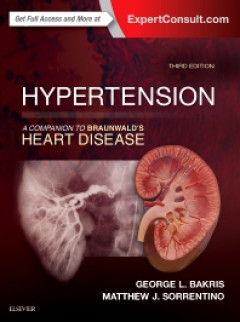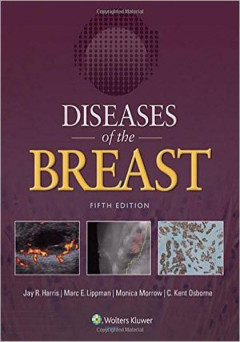Ditapis dengan
Ditemukan 1354 dari pencarian Anda melalui kata kunci: subject="DISEASE"
# Debug Box
/var/www/perpustakaan972/lib/SearchEngine/DefaultEngine.php:610 "Search Engine Debug 🔎 🪲"
Engine Type ⚙️: "SLiMS\SearchEngine\DefaultEngine"
SQL ⚙️: array:2 [ "count" => "select count(distinct b.biblio_id) from biblio as b left join mst_publisher as mp on b.publisher_id=mp.publisher_id left join mst_place as mpl on b.publish_place_id=mpl.place_id where b.opac_hide=0 and (b.biblio_id in(select bt.biblio_id from biblio_topic as bt left join mst_topic as mt on bt.topic_id=mt.topic_id where mt.topic like ?))" "query" => "select b.biblio_id, b.title, b.image, b.isbn_issn, b.publish_year, mp.publisher_name as `publisher`, mpl.place_name as `publish_place`, b.labels, b.input_date, b.edition, b.collation, b.series_title, b.call_number from biblio as b left join mst_publisher as mp on b.publisher_id=mp.publisher_id left join mst_place as mpl on b.publish_place_id=mpl.place_id where b.opac_hide=0 and (b.biblio_id in(select bt.biblio_id from biblio_topic as bt left join mst_topic as mt on bt.topic_id=mt.topic_id where mt.topic like ?)) order by b.last_update desc limit 10 offset 170" ]
Bind Value ⚒️: array:1 [ 0 => "%DISEASE%" ]

Hypertension : A Companion To Braunwald's Heart Disease
- Edisi
- -
- ISBN/ISSN
- 978-0-323-42973-3
- Deskripsi Fisik
- xviii ; 497 p ; bibl ; ilus ; 27 cm
- Judul Seri
- -
- No. Panggil
- WG 340 BAK 2015
- Edisi
- -
- ISBN/ISSN
- 978-0-323-42973-3
- Deskripsi Fisik
- xviii ; 497 p ; bibl ; ilus ; 27 cm
- Judul Seri
- -
- No. Panggil
- WG 340 BAK 2015

Advances in Insect Physiology : Physiology Of Human And Animal Disease Vectors
- Edisi
- Volume 37
- ISBN/ISSN
- 978-0-123-74829-4
- Deskripsi Fisik
- viii ; 347 p ; bibl; ilus; 23 cm
- Judul Seri
- -
- No. Panggil
- QX 500 SIM 2009
- Edisi
- Volume 37
- ISBN/ISSN
- 978-0-123-74829-4
- Deskripsi Fisik
- viii ; 347 p ; bibl; ilus; 23 cm
- Judul Seri
- -
- No. Panggil
- QX 500 SIM 2009

Diseases of The Breast
- Edisi
- 5 th
- ISBN/ISSN
- 978-1-4511-8627-7
- Deskripsi Fisik
- xxii ; 1196 p ; bibl ; ilus ; 28 cm
- Judul Seri
- -
- No. Panggil
- WP 840 HAR 2014
- Edisi
- 5 th
- ISBN/ISSN
- 978-1-4511-8627-7
- Deskripsi Fisik
- xxii ; 1196 p ; bibl ; ilus ; 28 cm
- Judul Seri
- -
- No. Panggil
- WP 840 HAR 2014
Menghadapi Penyakit MERS-CoV Di Indonesia
- Edisi
- -
- ISBN/ISSN
- -
- Deskripsi Fisik
- iv ; 68 p ; bibl ; ilus ; 20 cm
- Judul Seri
- -
- No. Panggil
- WC 950 SIT 2015
- Edisi
- -
- ISBN/ISSN
- -
- Deskripsi Fisik
- iv ; 68 p ; bibl ; ilus ; 20 cm
- Judul Seri
- -
- No. Panggil
- WC 950 SIT 2015

Mandell, Douglas, and Bennetts : Principles and Practice of Infectious Diseas…
- Edisi
- 8 th ed
- ISBN/ISSN
- 978-1-4557-4801-3
- Deskripsi Fisik
- xxxvii ; 1120 p ; bibl ; ilus ; 28 cm
- Judul Seri
- -
- No. Panggil
- WC 100 BEN 2015
- Edisi
- 8 th ed
- ISBN/ISSN
- 978-1-4557-4801-3
- Deskripsi Fisik
- xxxvii ; 1120 p ; bibl ; ilus ; 28 cm
- Judul Seri
- -
- No. Panggil
- WC 100 BEN 2015

Mandell, Douglas, and Bennetts : Principles and Practice of Infectious Diseas…
- Edisi
- 8 th ed
- ISBN/ISSN
- 978-1-4557-4001-3
- Deskripsi Fisik
- xxxviii ; 1896 p ; bibl ; ilus ; 28 cm
- Judul Seri
- -
- No. Panggil
- WC 100 BEN 2015
- Edisi
- 8 th ed
- ISBN/ISSN
- 978-1-4557-4001-3
- Deskripsi Fisik
- xxxviii ; 1896 p ; bibl ; ilus ; 28 cm
- Judul Seri
- -
- No. Panggil
- WC 100 BEN 2015

Evaluasi Status Endemisitas Filariasis pada Beberapa Kabupaten di Provinsi Ac…
- Edisi
- -
- ISBN/ISSN
- -
- Deskripsi Fisik
- 40 p.; bibl.; ilus.; 30 cm.
- Judul Seri
- Copy 2 buku
- No. Panggil
- 448 LIT
- Edisi
- -
- ISBN/ISSN
- -
- Deskripsi Fisik
- 40 p.; bibl.; ilus.; 30 cm.
- Judul Seri
- Copy 2 buku
- No. Panggil
- 448 LIT

Analisis Risiko Kejadian Demam Berdarah Dengue (DBD) dengan Model Standart De…
- Edisi
- -
- ISBN/ISSN
- -
- Deskripsi Fisik
- 95p.; bibl.; ilus.; 30 cm.
- Judul Seri
- -
- No. Panggil
- 465 LIT
- Edisi
- -
- ISBN/ISSN
- -
- Deskripsi Fisik
- 95p.; bibl.; ilus.; 30 cm.
- Judul Seri
- -
- No. Panggil
- 465 LIT

Assessment dan Pendampingan Penanganan Peningkatan Kasus / Kejadian Luar Bias…
Ada CD
- Edisi
- -
- ISBN/ISSN
- -
- Deskripsi Fisik
- 40 p.; bibl.; ilus.; 30 cm.
- Judul Seri
- -
- No. Panggil
- 460 LIT

Distres Emosional di Kalangan Remaja dengan Penyakit Kronis di Indonesia: Tan…
Emotional distress and chronic diseases are the highest contributors of Year Life with Disability (YLD) in Indonesia. Youth age 15–24 comprised of 14% Indonesian population. It is important to have information on their mental health status and the magnitude of chronic disease they experience. The information is useful as inputs for estimating the disease burden in the years to come. Obtain…
- Edisi
- -
- ISBN/ISSN
- 1410-2935
- Deskripsi Fisik
- 7p
- Judul Seri
- -
- No. Panggil
- Buletin Penelitian Sistem Kesehatan, 16 (4): 437-4
 Karya Umum
Karya Umum  Filsafat
Filsafat  Agama
Agama  Ilmu-ilmu Sosial
Ilmu-ilmu Sosial  Bahasa
Bahasa  Ilmu-ilmu Murni
Ilmu-ilmu Murni  Ilmu-ilmu Terapan
Ilmu-ilmu Terapan  Kesenian, Hiburan, dan Olahraga
Kesenian, Hiburan, dan Olahraga  Kesusastraan
Kesusastraan  Geografi dan Sejarah
Geografi dan Sejarah